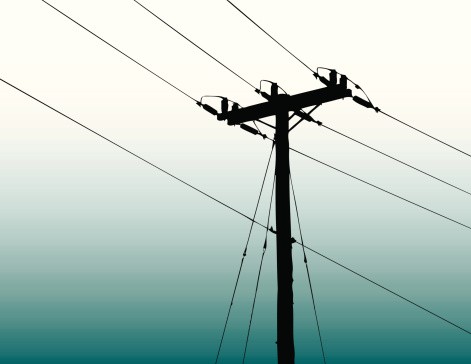By Ellen Fraser, | September 21, 2016

AT&T will start the first field trials of Project AirGig in 2017.
AT&T has unveiled its Project AirGig that links up power lines and uses a special transmitter to deliver super-fast gigabit internet wirelessly.
Project AirGig is a new wireless internet delivery system that carries high-speed internet service over existing power infrastructure, Business Insider reported. The system would transfer the data between routers to the top of utility poles, transmitting data wirelessly over the millimeter waveband or gigabit Wi-Fi.
Like Us on Facebook
AT&T said that starting next year, the first field trials of the system will commence. The wireless company said that it is still in its experimental phase. AT&T already has over 100 patent applications supporting AirGig and other access technologies.
The Dallas-based telecom company aims to distribute its high-speed network inexpensively to places that do not have internet connection. It's new technology could widen the potential reach of the company. AirGig may empower the company to deliver service in rural areas outside of its geographic territory and even overseas, according to CNet.
“Project AirGig has tremendous potential to transform internet access globally – well beyond our current broadband footprint and not just in the United States,” said John Donovan, AT&T’s chief strategy officer, and group president, Technology and Operations.
Project AirGig will use low-cost plastic antennas that deliver data signals. These antennas would be placed on already existing power lines, which will create an electromagnetic field to guide the signals across the wires. The technology is easier to deploy compared to fiber as it runs over a license-free spectrum, where burying of cables or the construction of new towers is not needed.
AT&T hopes that after the successful lab tests of the new technology, it can launch the AirGig to selected cities and countries by 2017. The company is planning to roll out AirGig to rural and global areas that usually do not have internet access because of their remoteness.
-
Use of Coronavirus Pandemic Drones Raises Privacy Concerns: Drones Spread Fear, Local Officials Say

-
Coronavirus Hampers The Delivery Of Lockheed Martin F-35 Stealth Fighters For 2020

-
Instagram Speeds Up Plans to Add Account Memorialization Feature Due to COVID-19 Deaths

-
NASA: Perseverance Plans to Bring 'Mars Rock' to Earth in 2031

-
600 Dead And 3,000 In The Hospital as Iranians Believed Drinking High-Concentrations of Alcohol Can Cure The Coronavirus

-
600 Dead And 3,000 In The Hospital as Iranians Believed Drinking High-Concentrations of Alcohol Can Cure The Coronavirus

-
COVID-19: Doctors, Nurses Use Virtual Reality to Learn New Skills in Treating Coronavirus Patients









